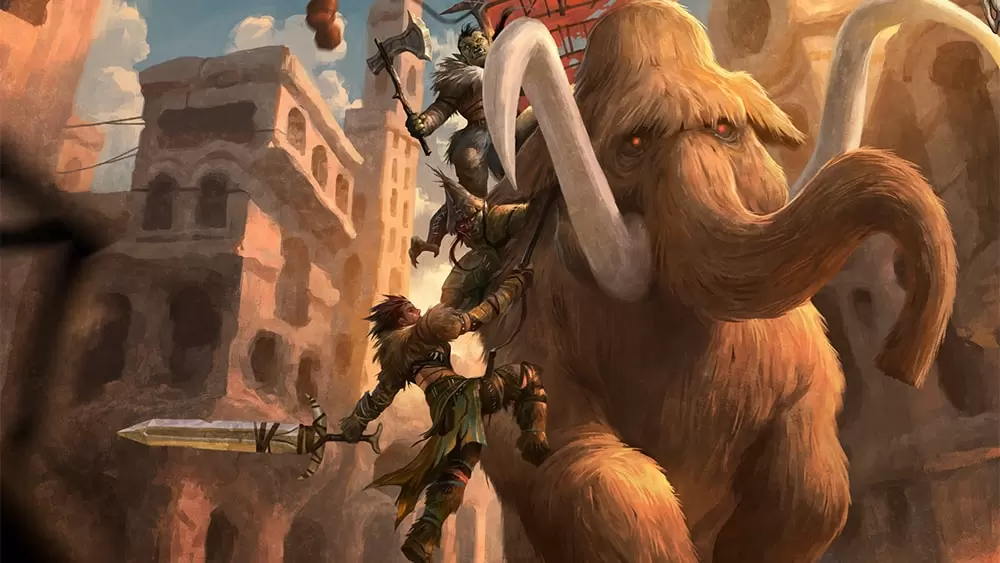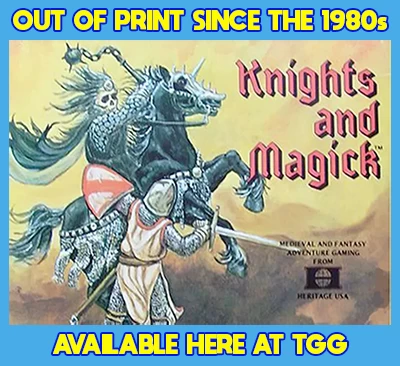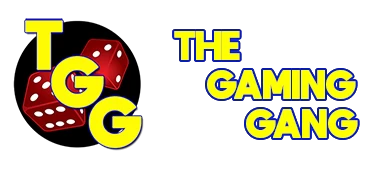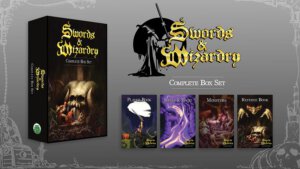
From Frog God:
After more than ten years of requests, we’re finally producing a boxed set for the Swords & Wizardry rules, the original ancestor of 5e. It’s a fast-playing, wild ride into the world of the fantastic, with the same depth of play as its later-edition brethren. A fantasy role-playing game with a distinct feel to it, different from later editions of the game … and now it comes in a box!
Swords & Wizardry is more than a re-statement of the original rules that gave rise to 5e. It is fast-playing, easy to start, and easy to learn by anyone. Swords and Wizardry is a snapshot of the rules as they existed in 1978 right before “first edition” was released. The fifth edition game currently played, watched and beloved by millions is great fun, but the structure of the rules has changed over the course of editions, and there’s a unique feel to the earlier versions of the game which you may not have encountered before.
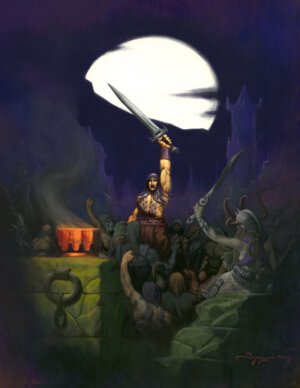
These original rules are considerably different than the 5e version you may be familiar with. Here’s a quick run-down of how the “feel” of the game can be very different:
Character generation is very fast, and contains less detail (and fewer choices to make) about specific skills or tailored options.
Combat moves along quickly, and tactics are based on what the player describes doing rather than on anything listed on a character sheet.
In general, the “lighter” approach of these rules leads to certain effects on game play:
- Since combat occupies less time, there is often more focus on exploration and puzzle-solving than there is in later editions of the game. You don’t have to “reserve” time for long combats.
- Since there are no established rules for noticing things, figuring out how mechanisms work, or interpreting language, there is more scope for presenting “puzzles” as tests of skill for the players. Player problem-solving is more direct in earlier editions of the game.
- Role-playing is just as robust as in later editions of the game; it emerges from the players and the way a particular gaming group operates.
Swords & Wizardry is about “rulings” not “rules,” and a lot of players describe a test for whether it’s working well: when the Referee describes a situation and the players don’t immediately look down at their character sheets for their options, that’s when they’re in the “Original D&D Zone.”
- Pinebox, TX Middle School Boxed Set Reviewed - Dec 24, 2024
- Score Big Savings with the Fifty-Dungeon Bundle of Holding - Dec 24, 2024
- The ACKS II Revised Rulebook Lands in PDF - Dec 24, 2024













